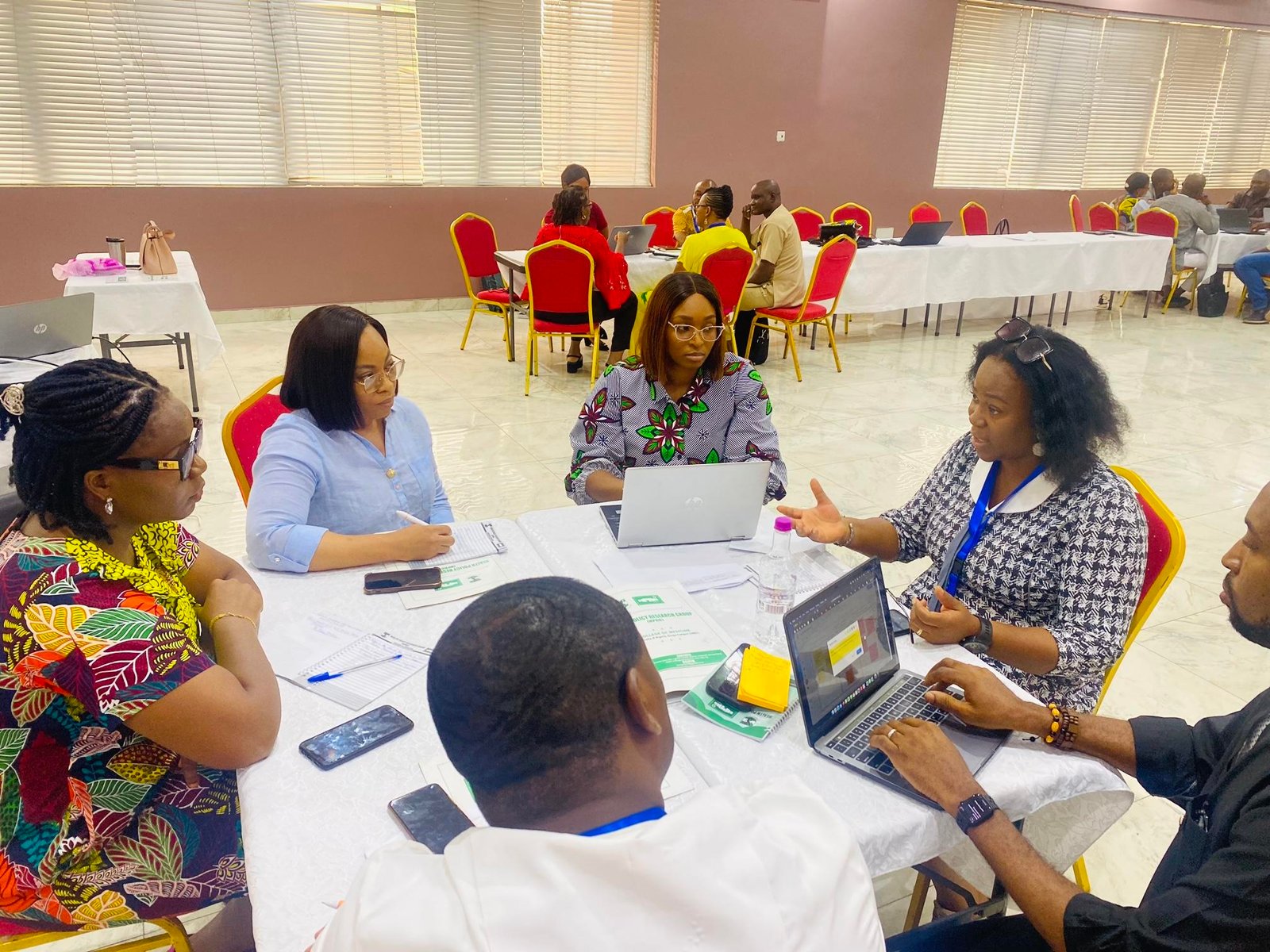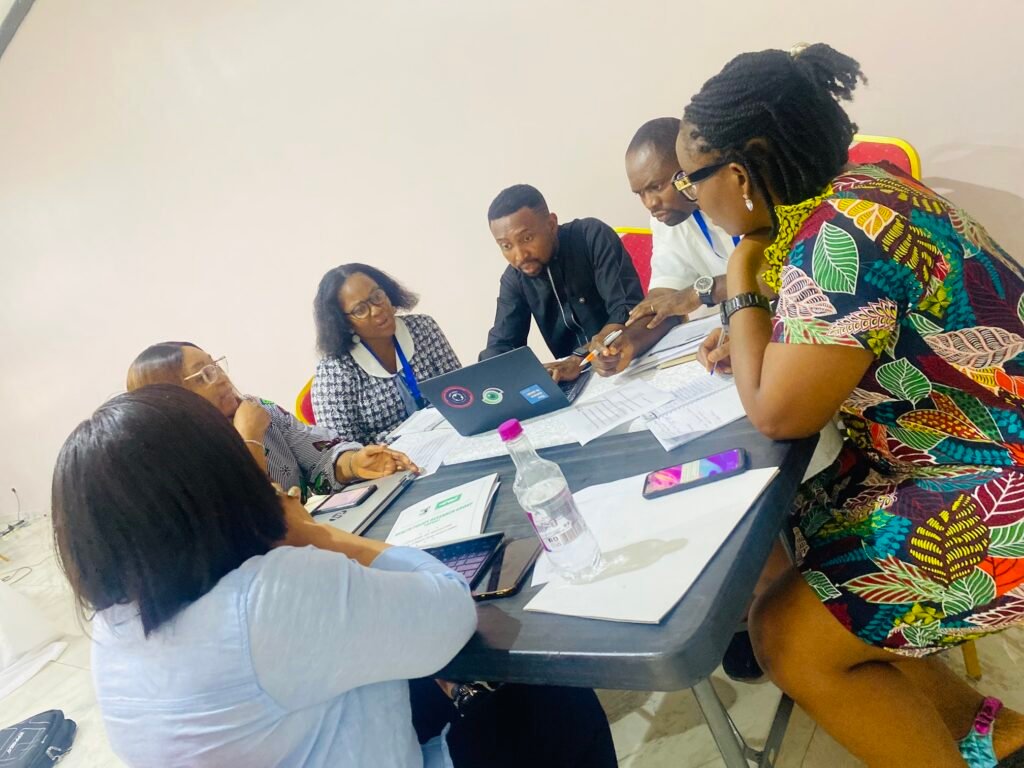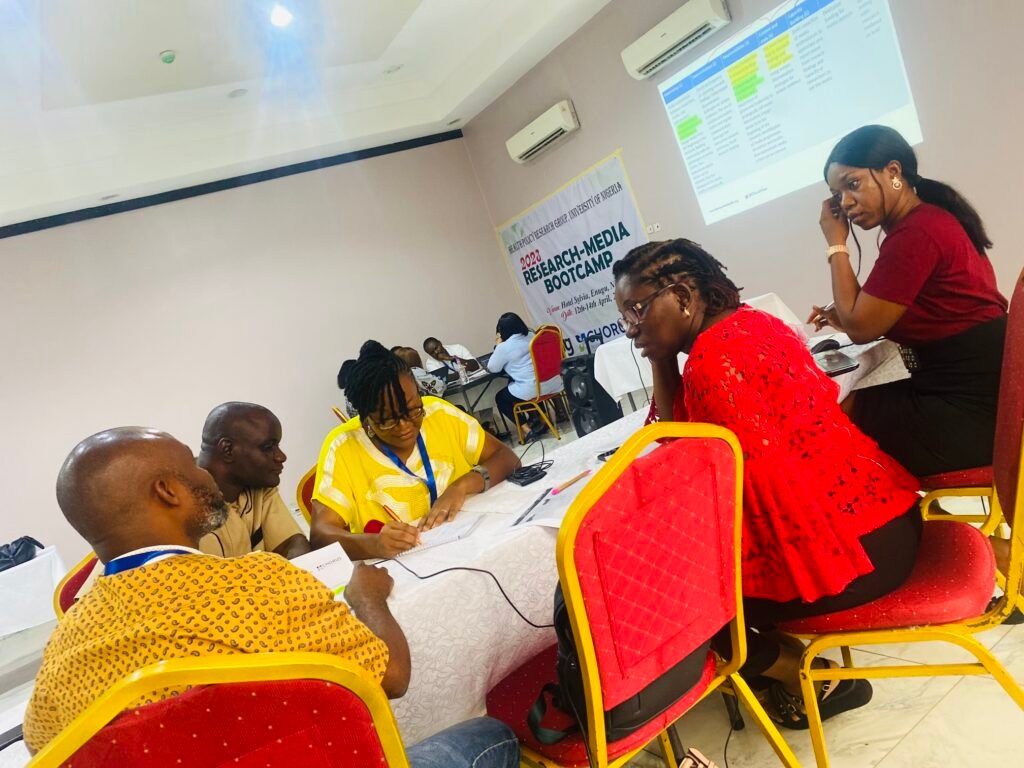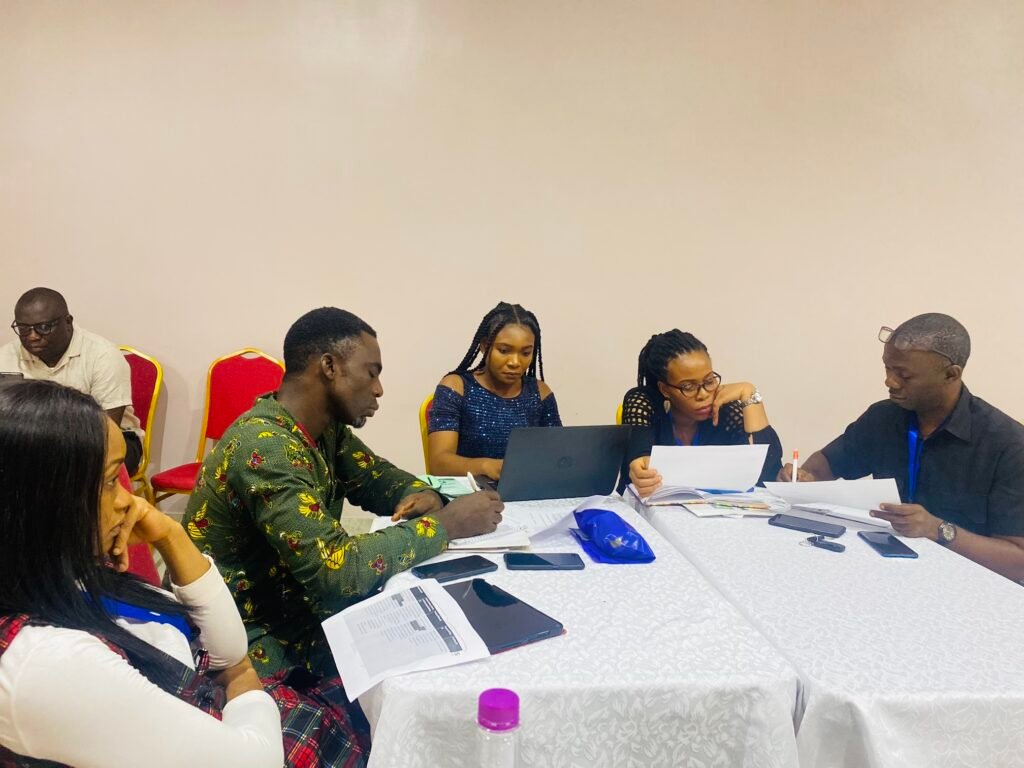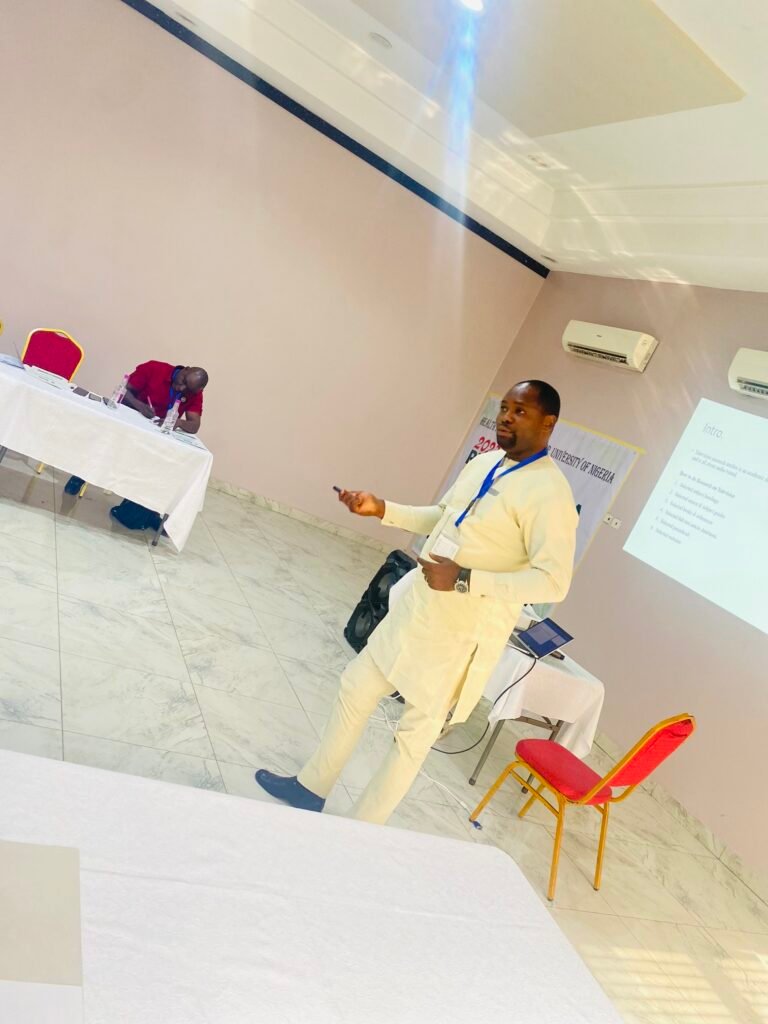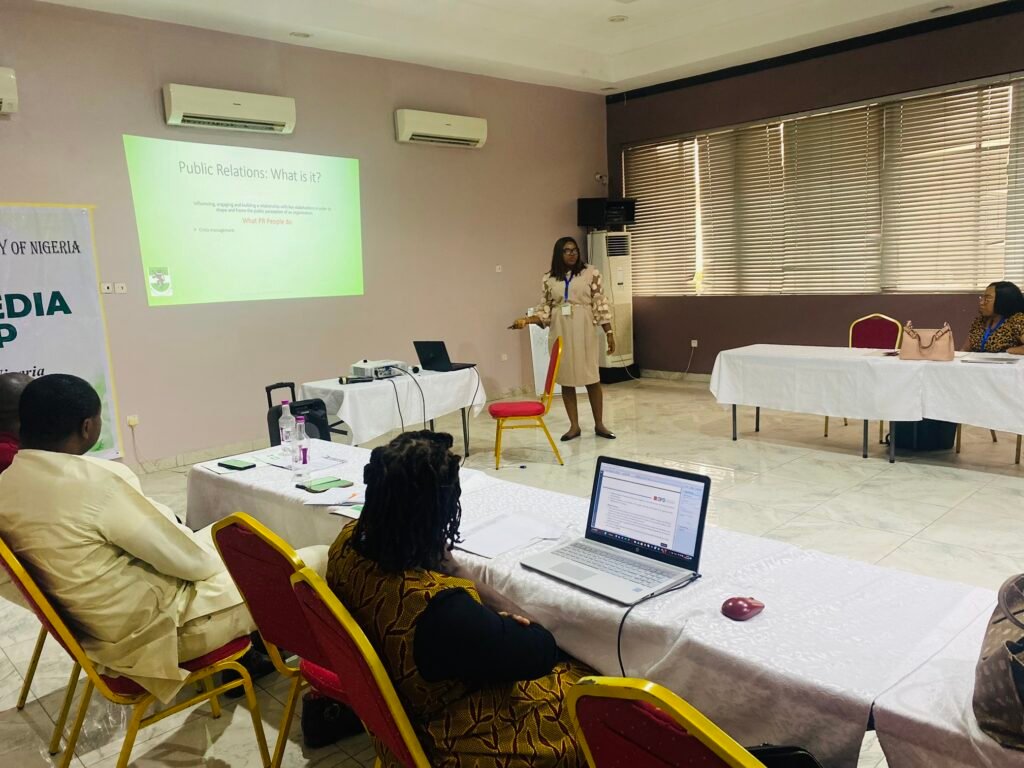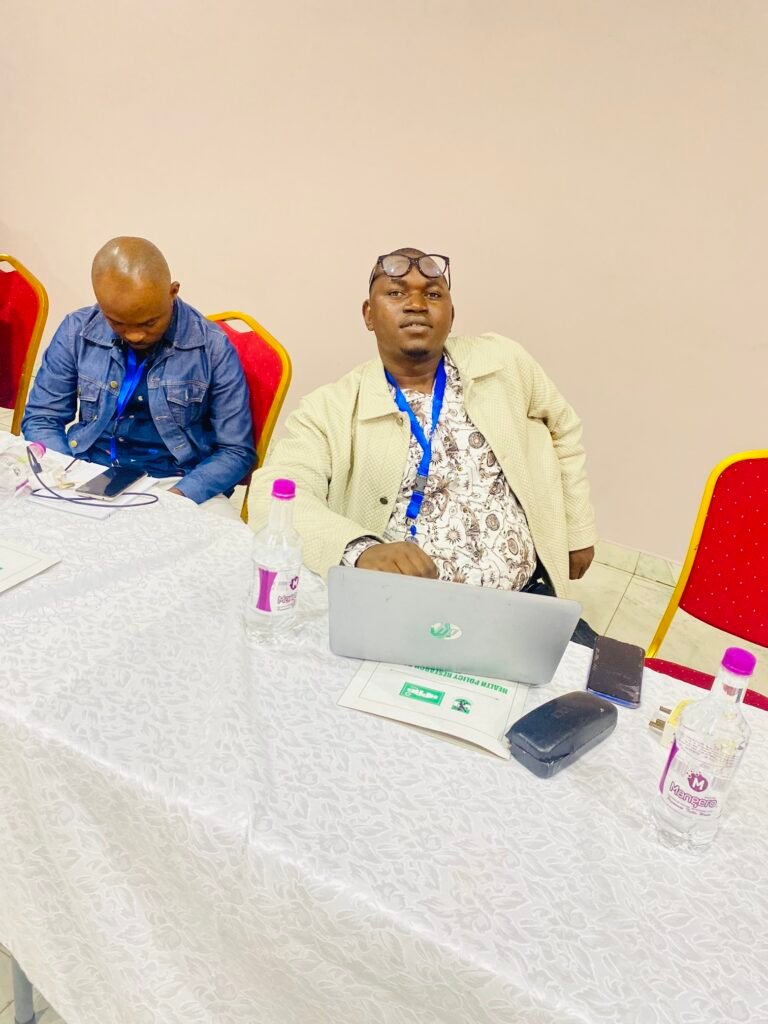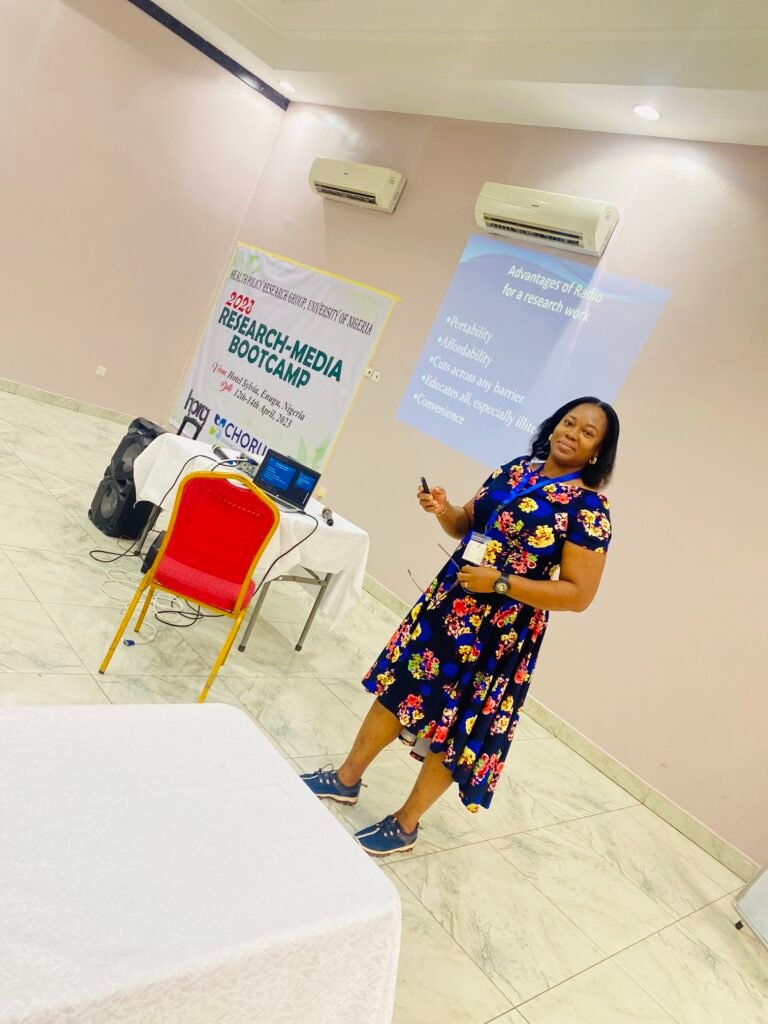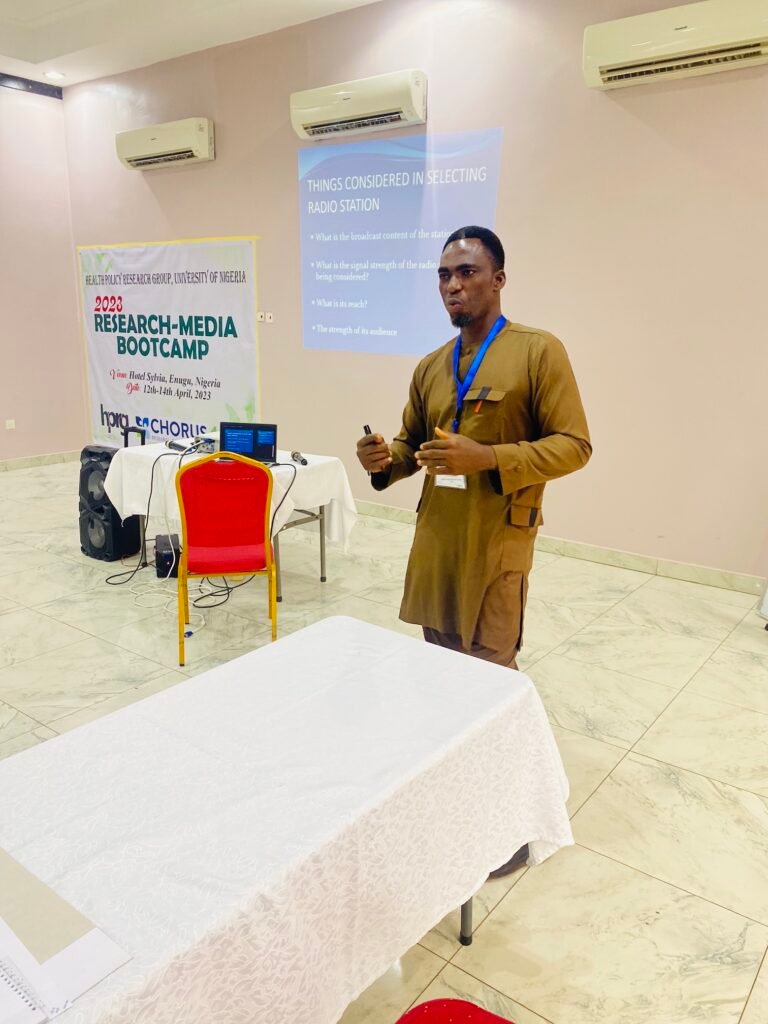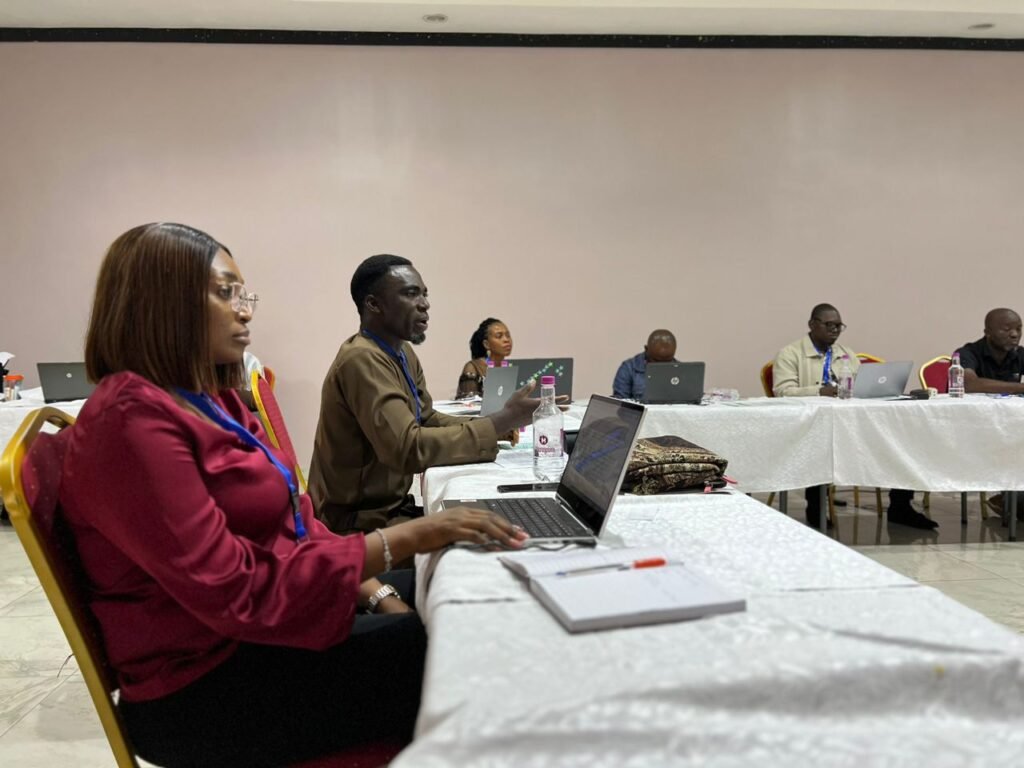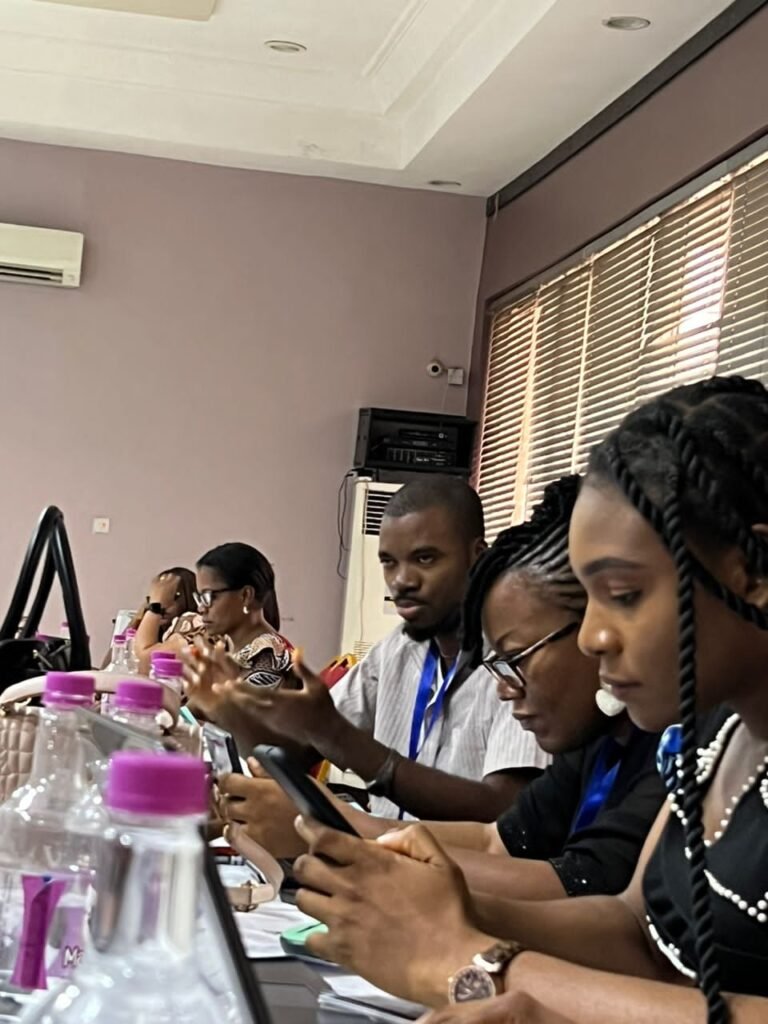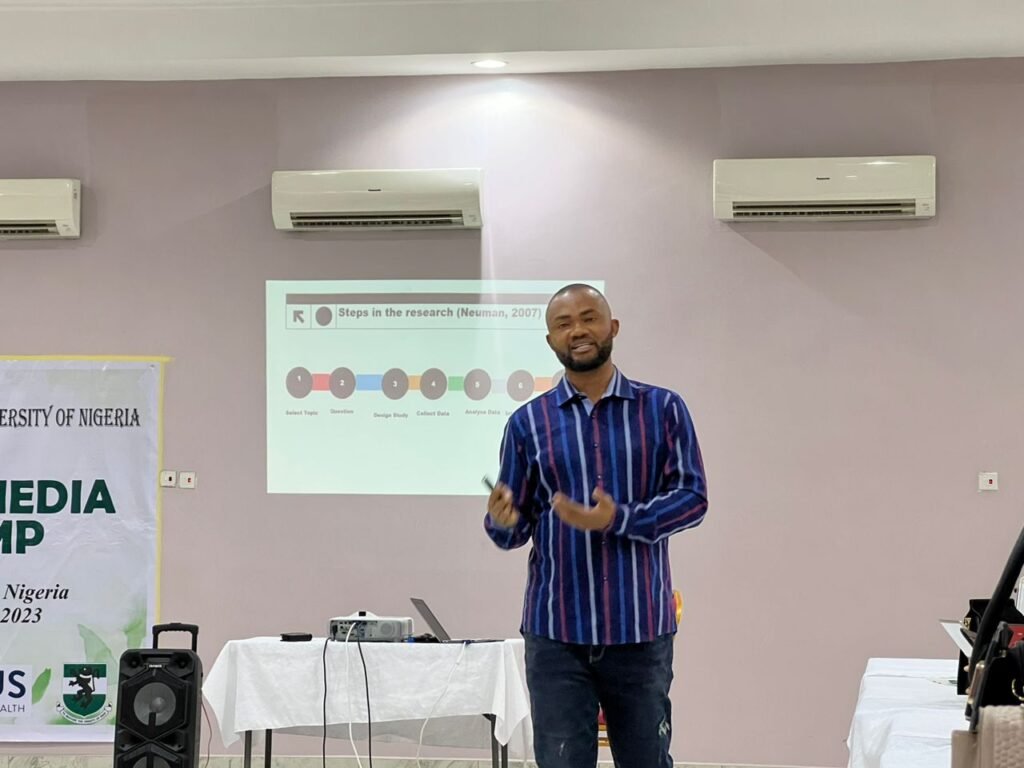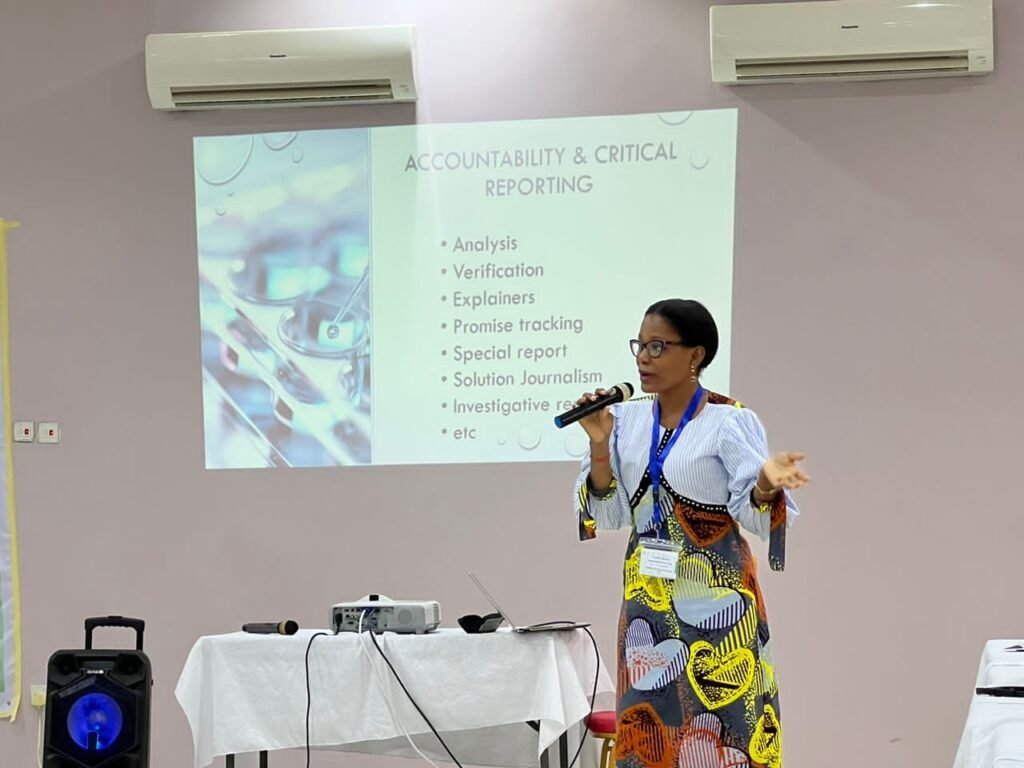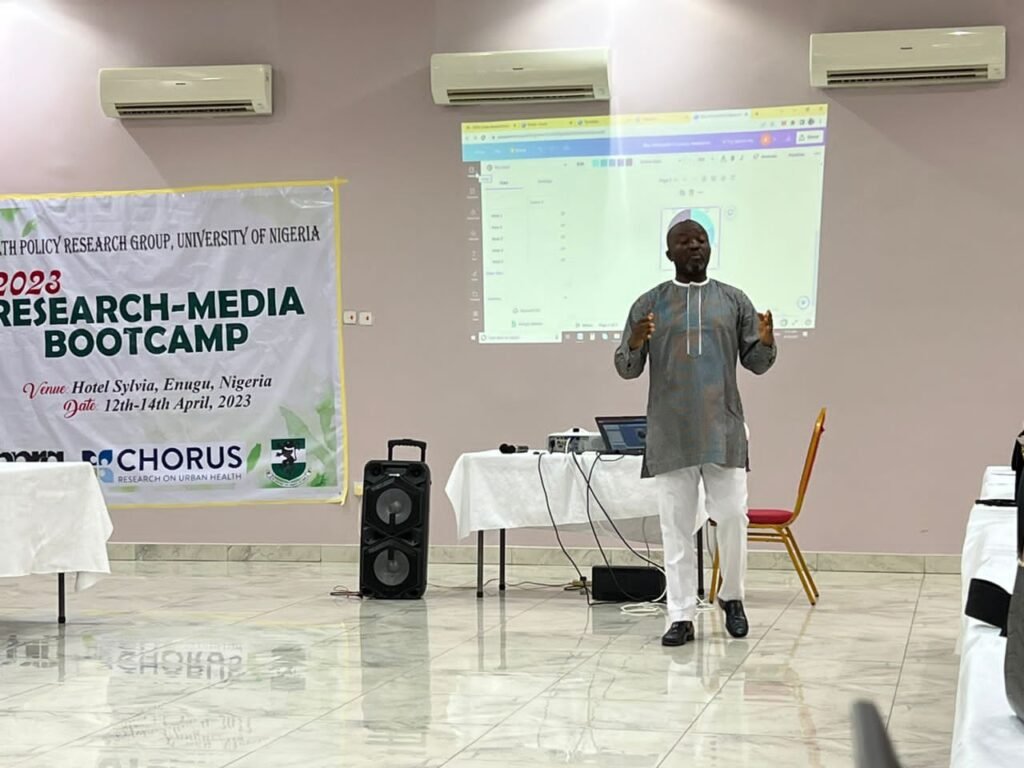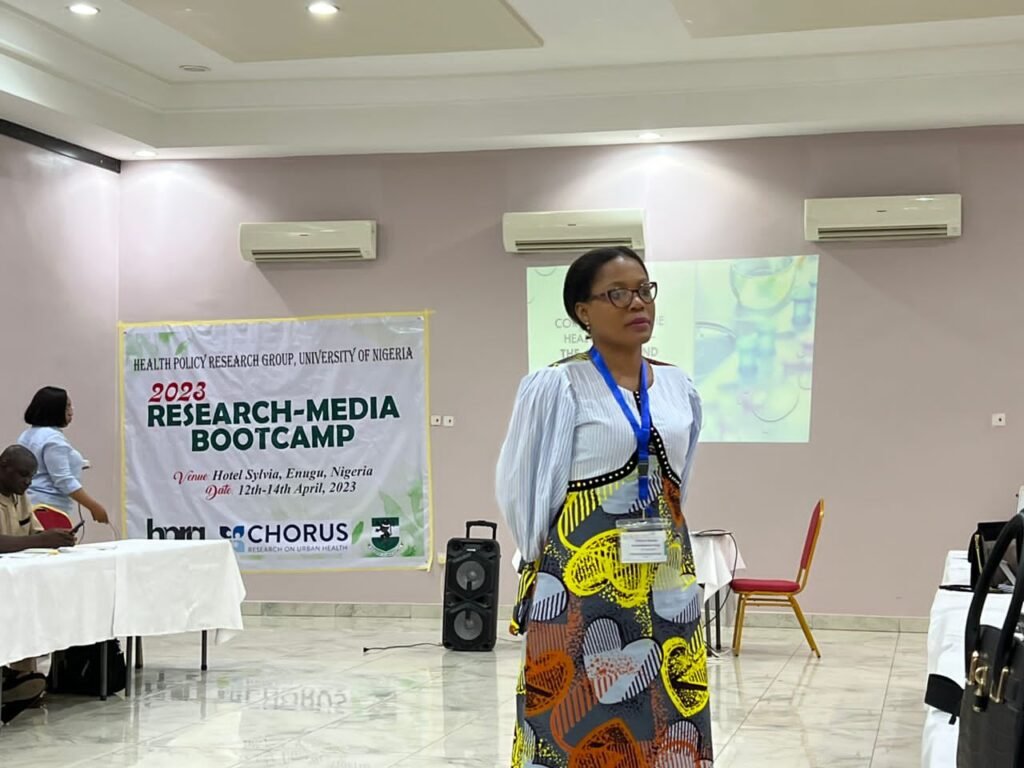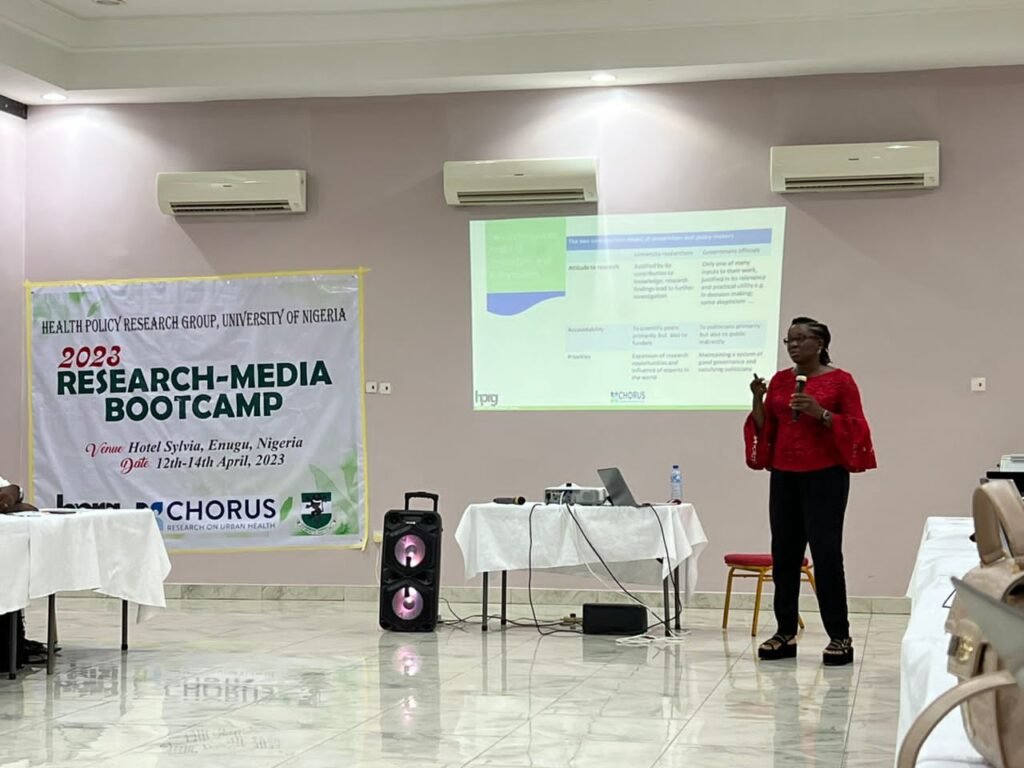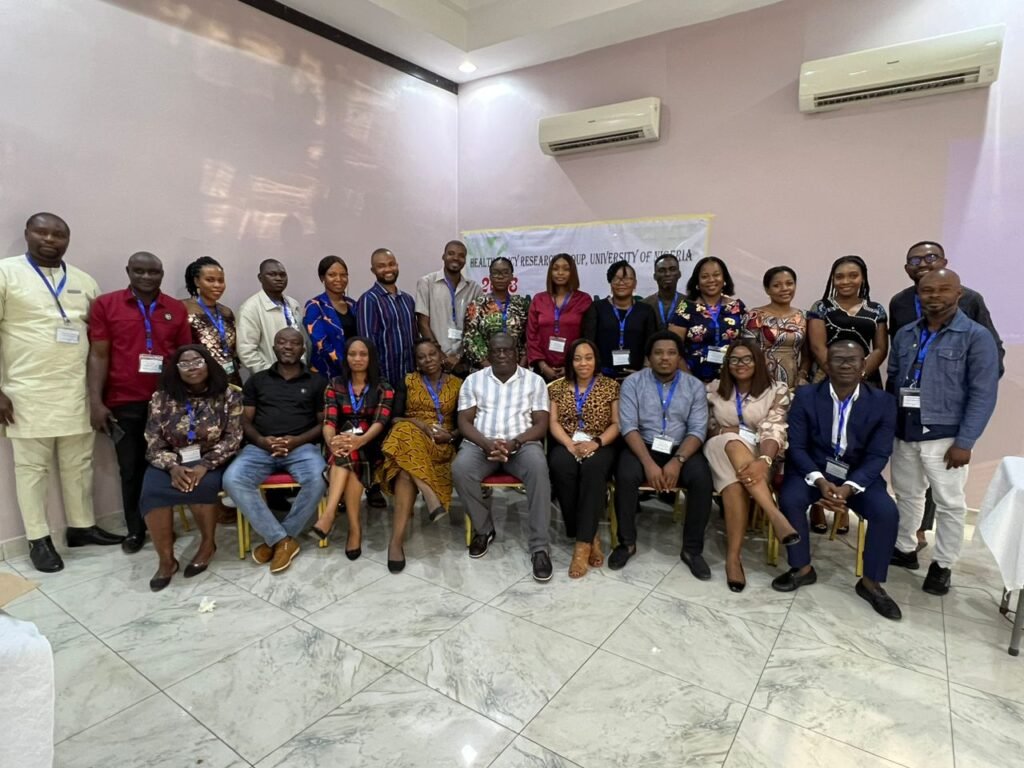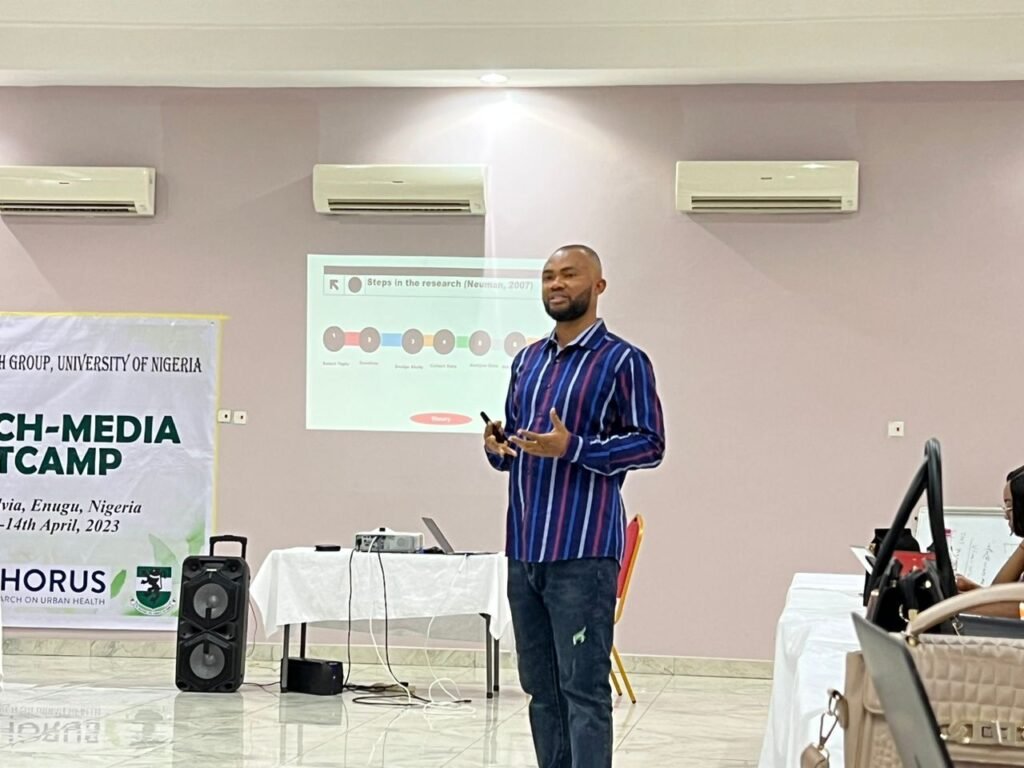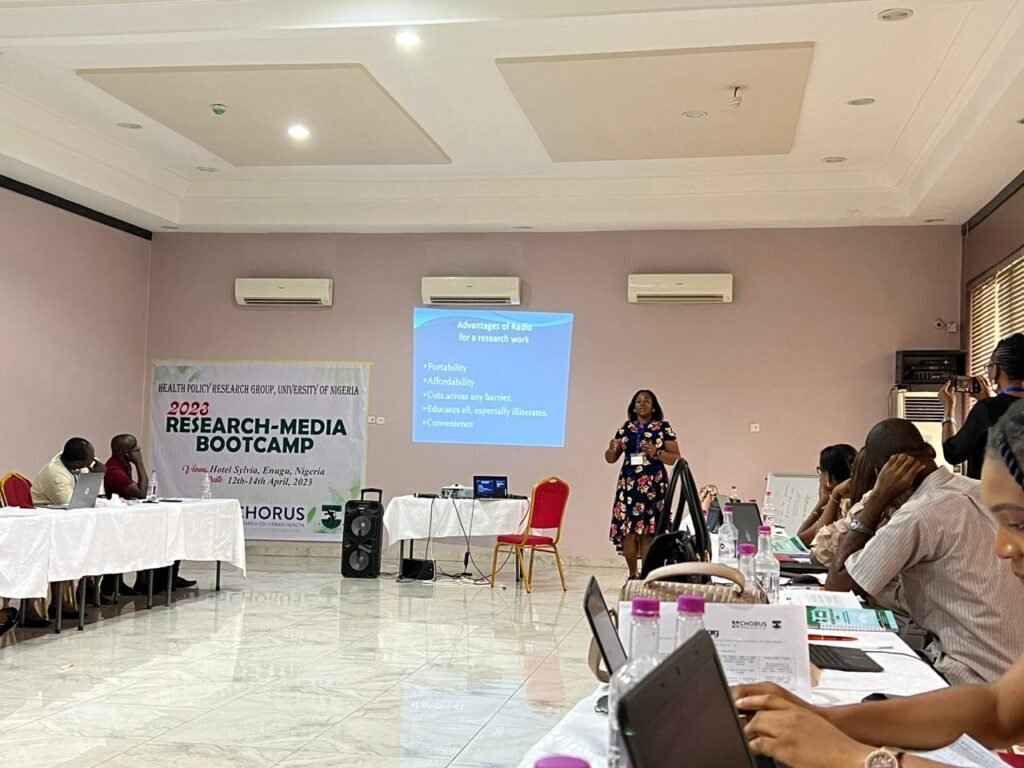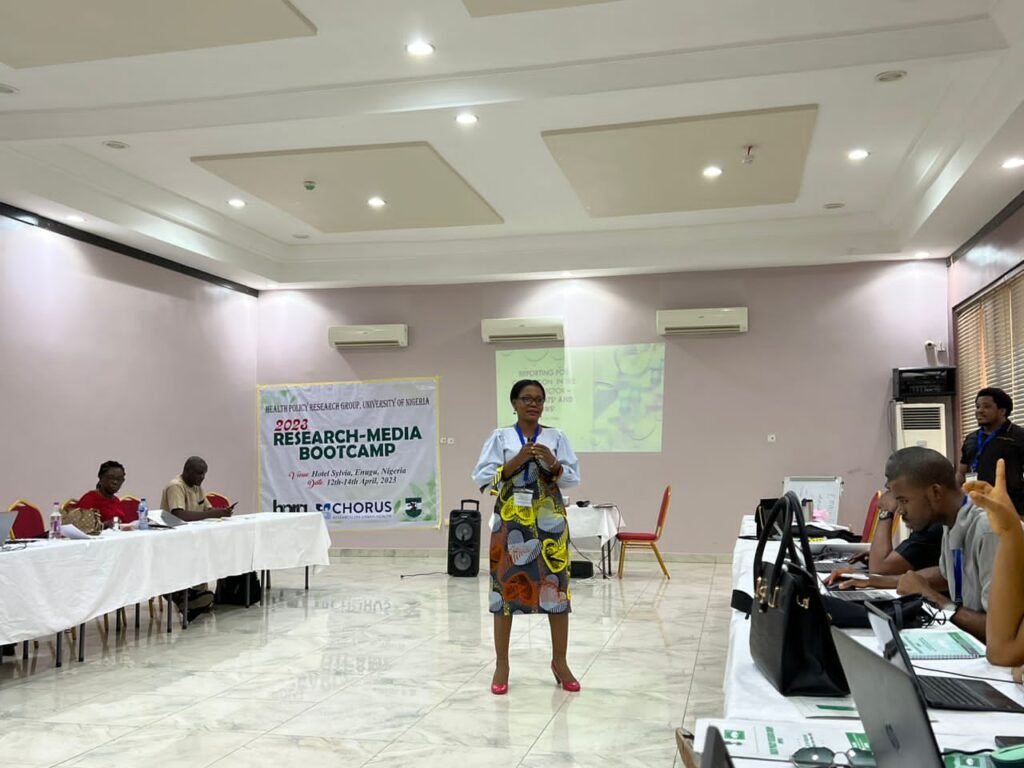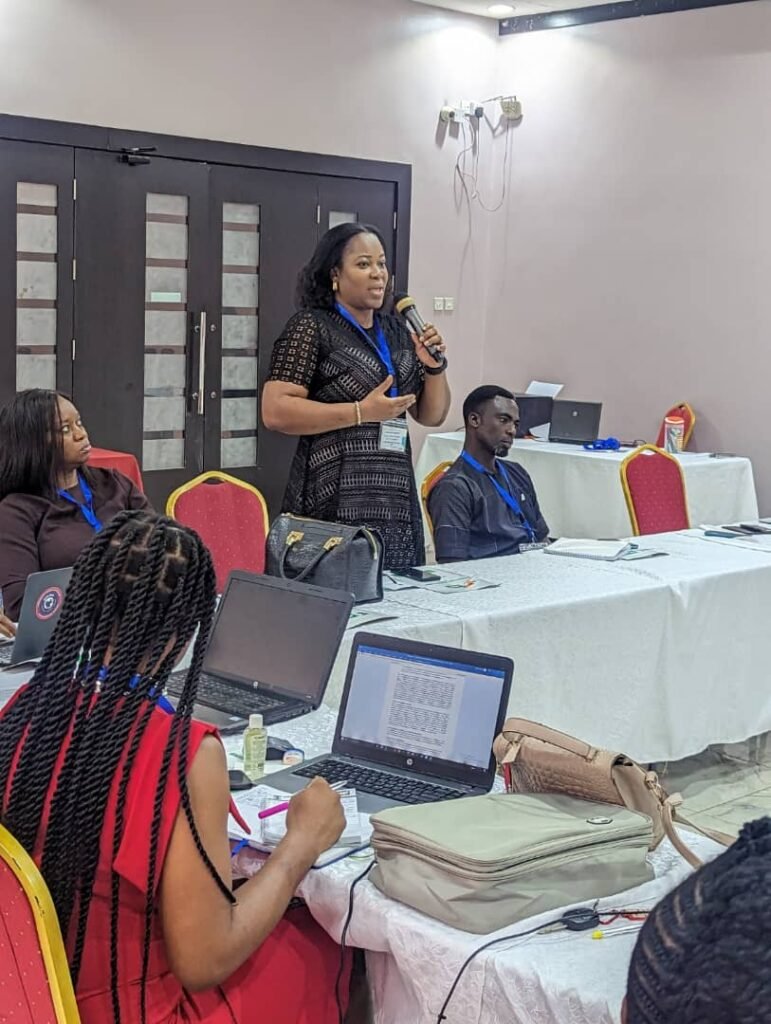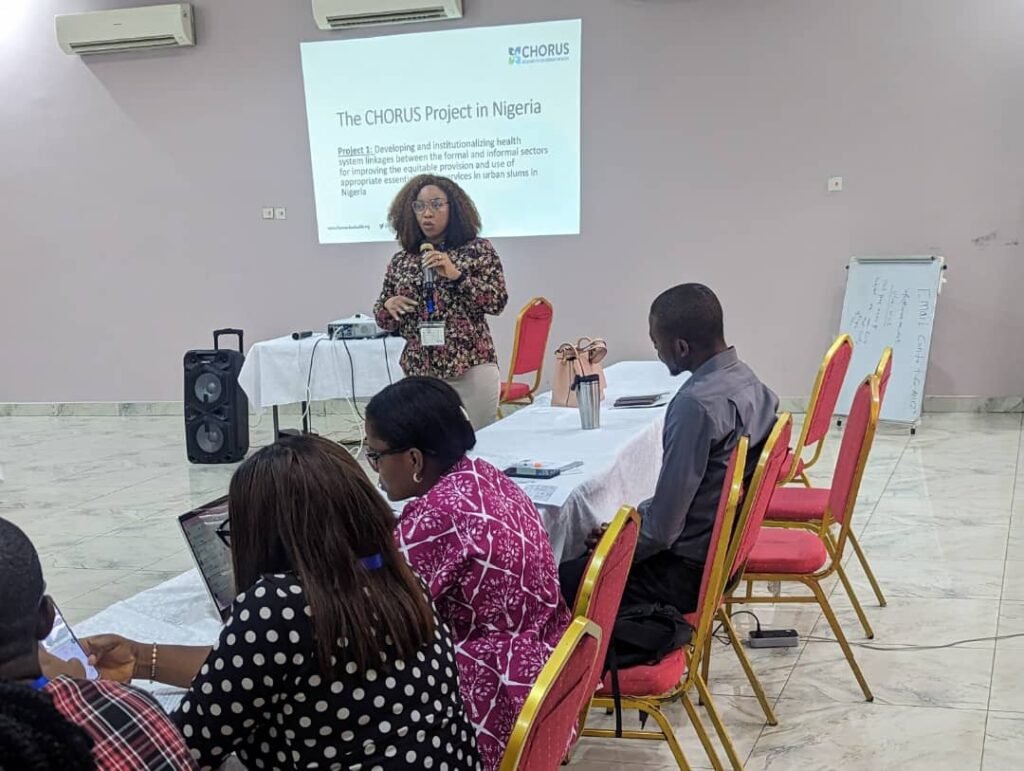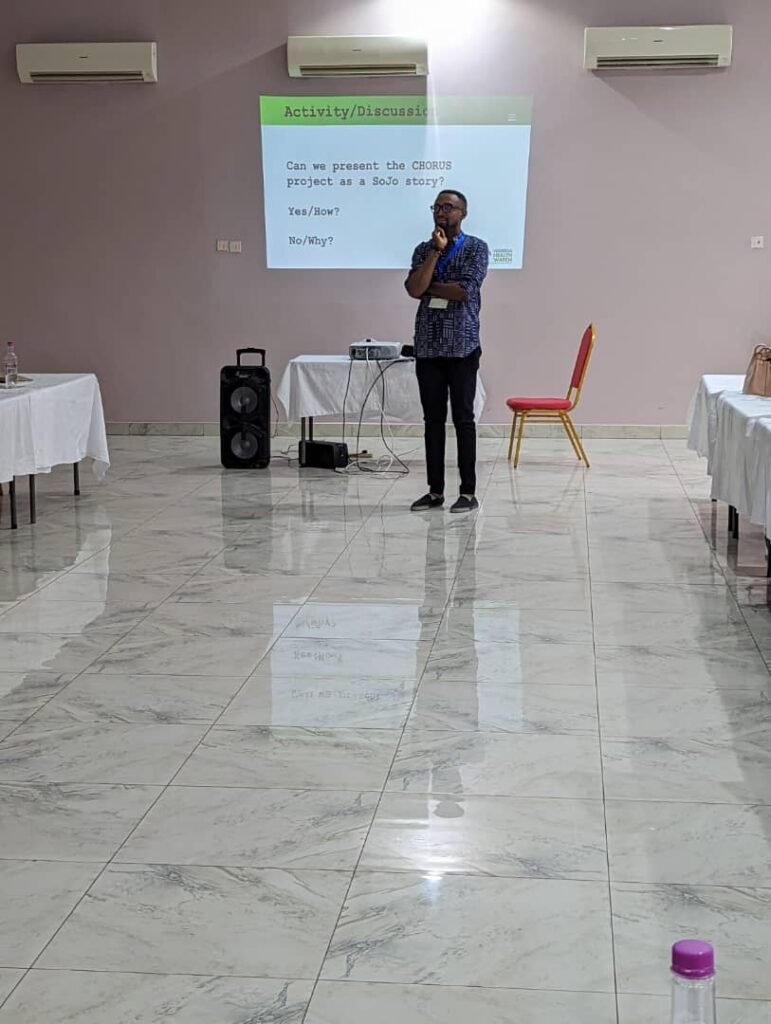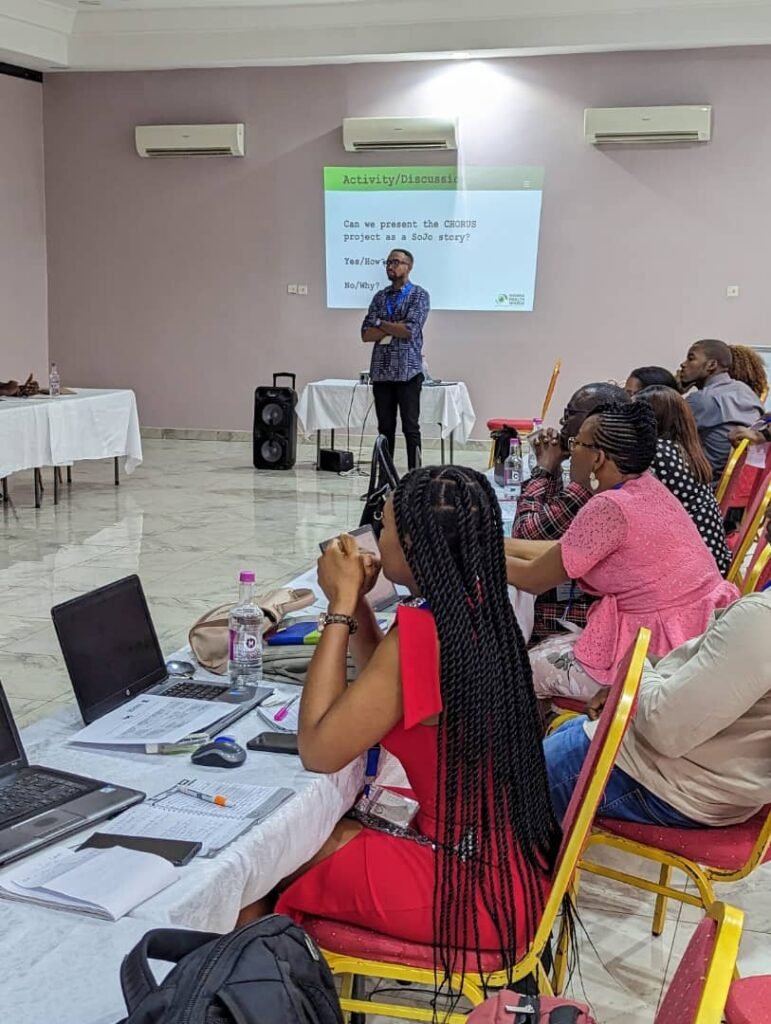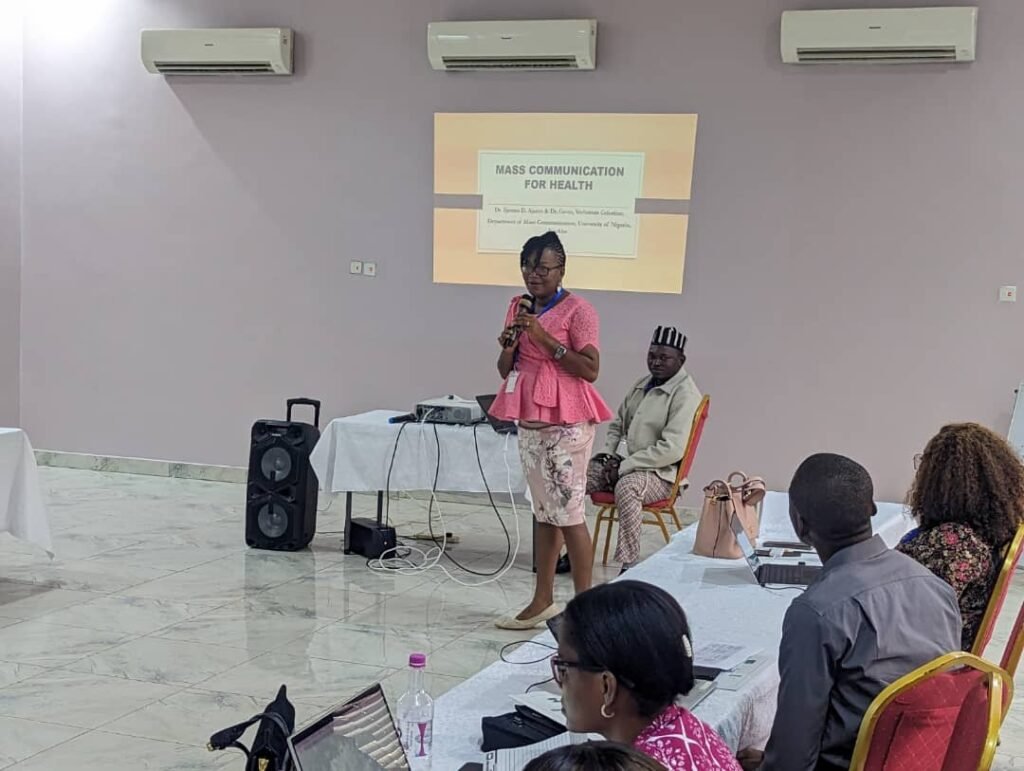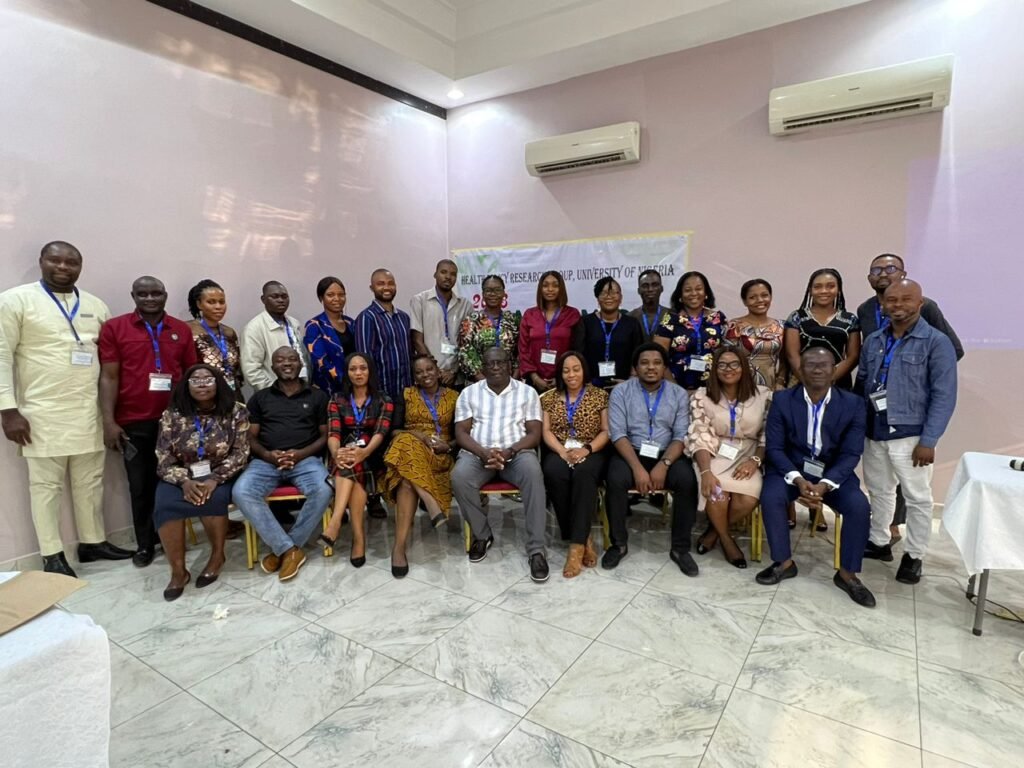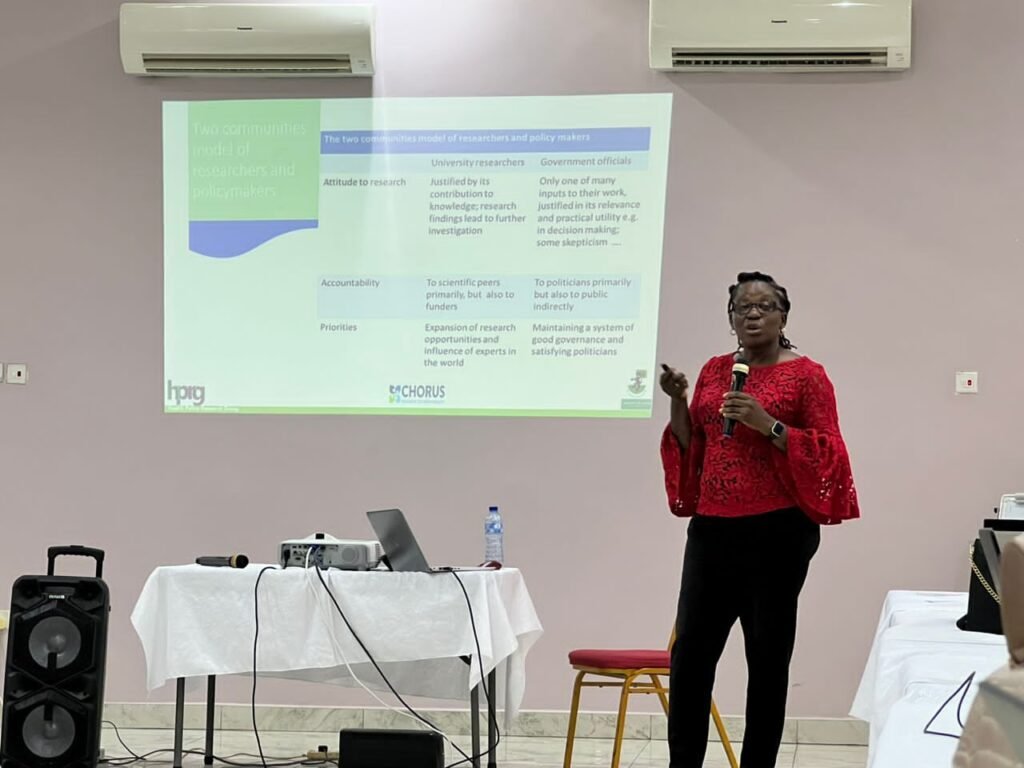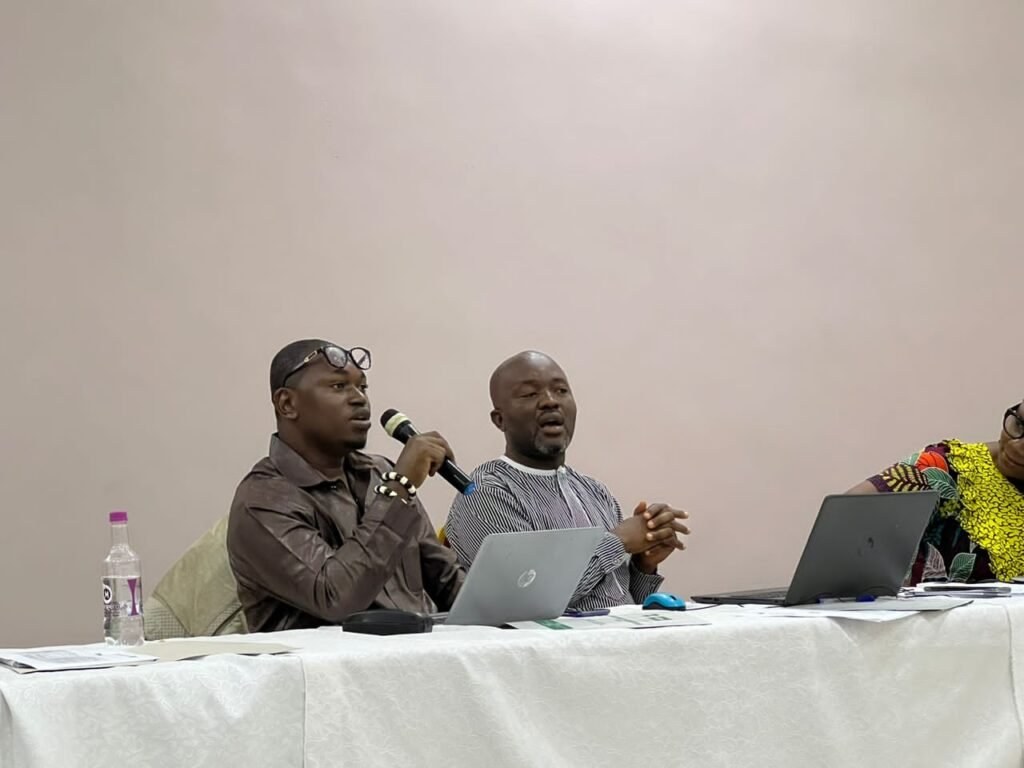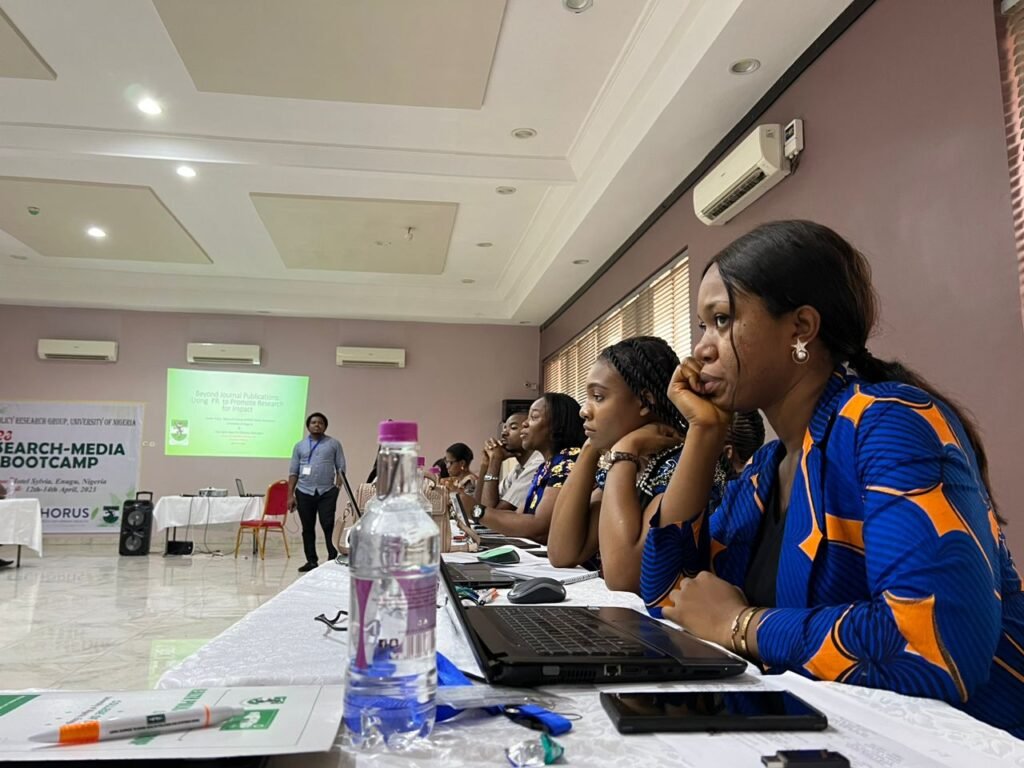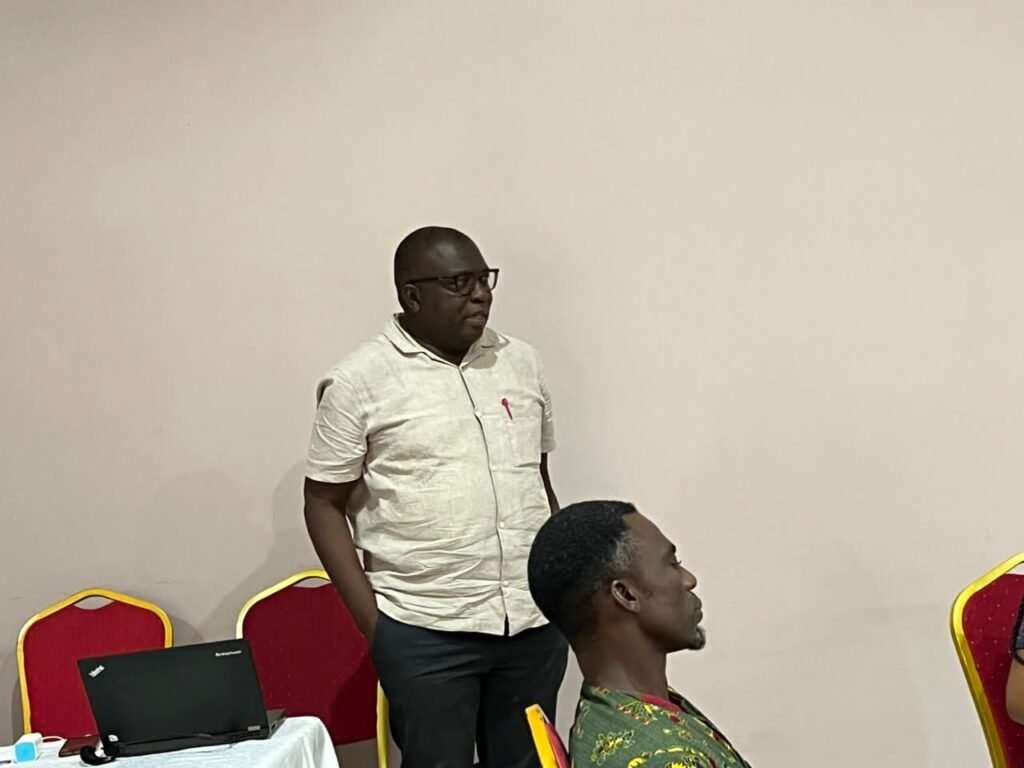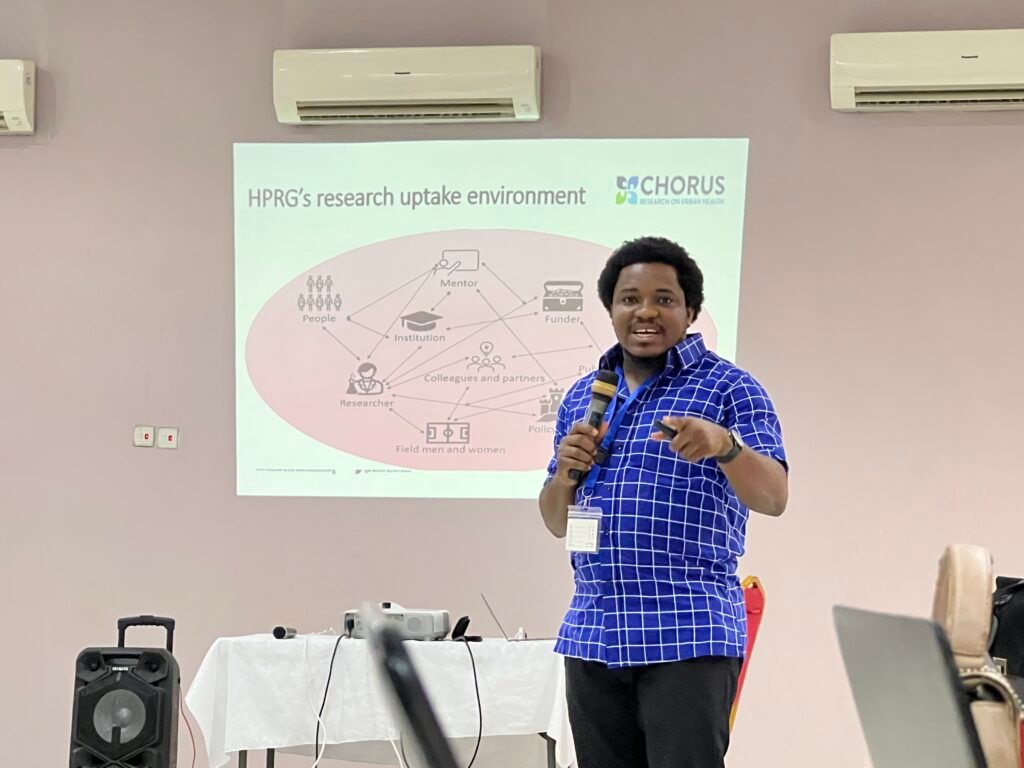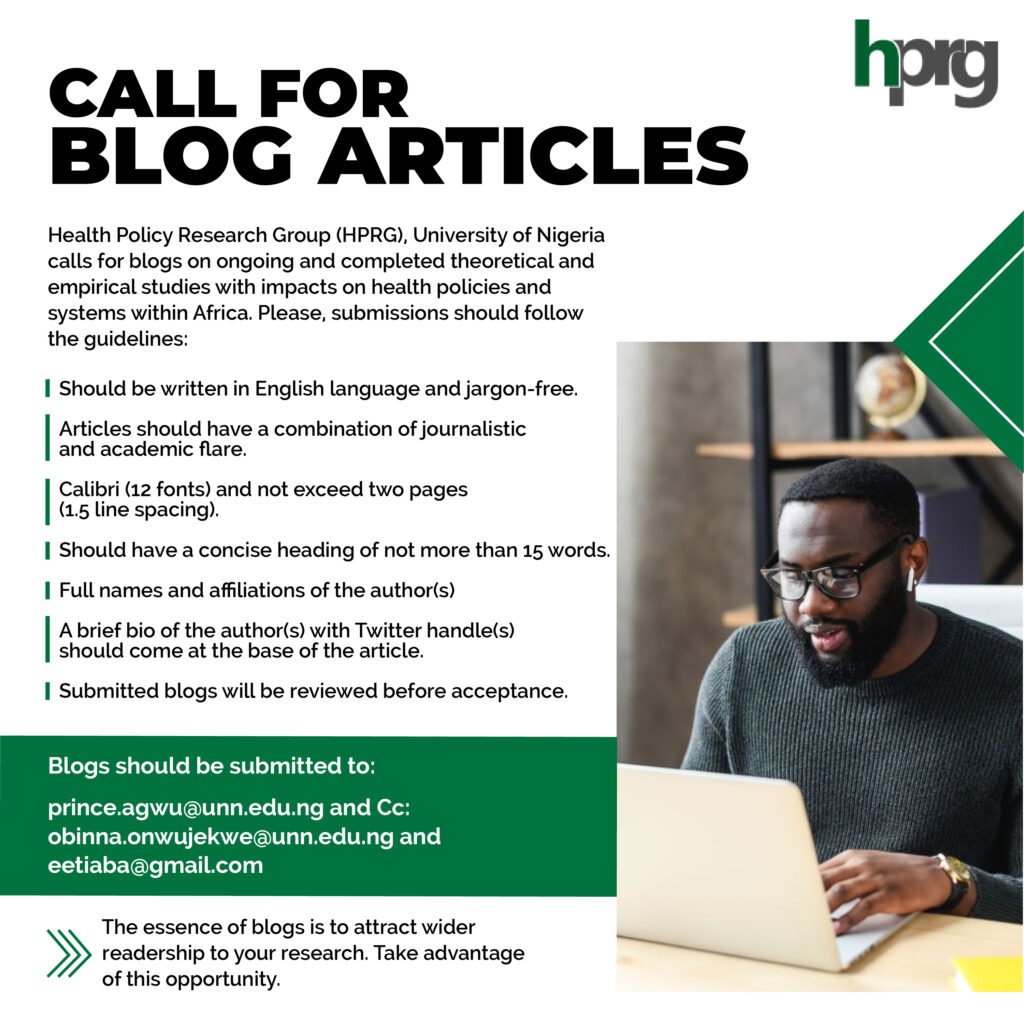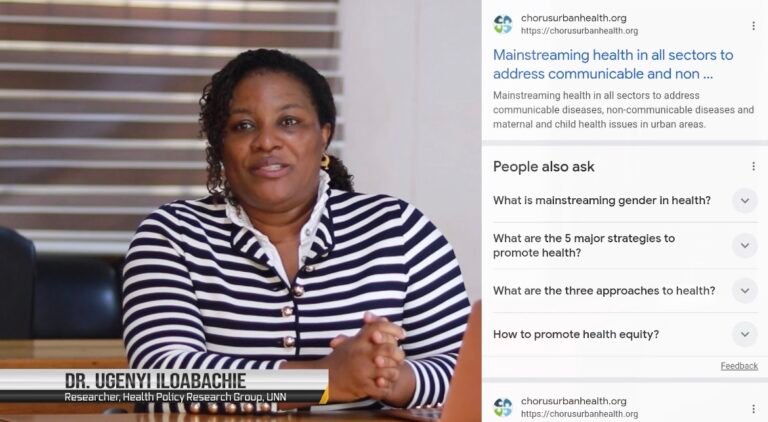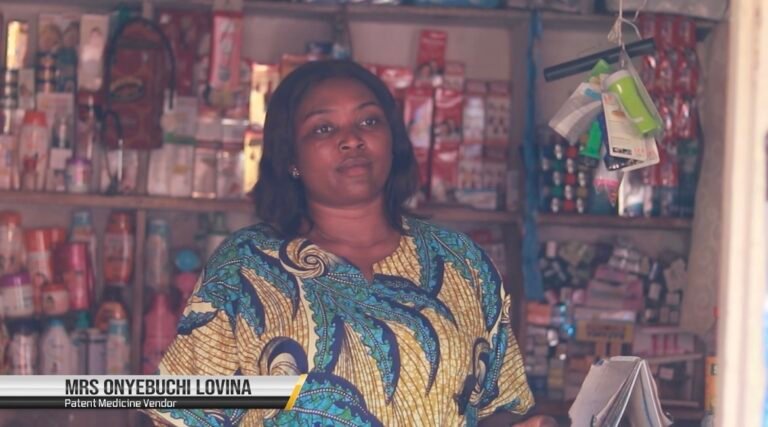By The Health Policy Research Group, University of Nigeria
Researchers serially complain of the lack of spread of the wonderful and interesting scientific evidence they generate. Why this is so, is because researchers use a lot of technical languages in their works. In contrast, the media remains public friendly, writes using simple words and utilize creative means to reach the public. The media is known for inspiring political debates, causing political actors to pay close attention to them, far more than the attention given to scientific publications. A blog, titled, “Everyone!! wants to read a blog but your scholar-colleagues want to read your journal article” discusses why it is essential for academics to go beyond just writing academic papers.
With the understanding that the media takes care of the limitations of researchers in research communication, the Health Policy Research Group (HPRG), University of Nigeria, through the Community-led Responsive and Effective Urban Health Systems (CHORUS) organised a research-media bootcamp between April 12-14, 2023 in Enugu, for researchers and media/public relations (PR) gurus to have a handshake and build collaborations. The bootcamp provided an opportunity for knowledge and skills exchange between the media experts and researchers, with the focus of improving seamless and widespread communication of health research evidence to the public and policymakers.
What researchers are saying
To pull together and make sense of quality research evidence is no small feat. The processes and funding are tasking. Yet researchers at HPRG have remained committed to the cause of regularly producing research evidence in health systems and policy. In more advanced countries, investments in research are indeed huge, and governments commission researchers to go in search of evidence used to make policies and programmes to improve governance and the lives of citizens. According to the World Bank, Nigeria’s expenditure on research is less than 0.5% of its Gross Domestic Product (GDP), compared to countries like South Africa and more advanced countries like the United Kingdom and Canada that spend close to (and) over 2% of GDP on research. These countries ensure that their policies and programmes, including those of the health sector are informed by research evidence – a practice that is yet to gain strong footing in Nigeria.
Quality time during the bootcamp was dedicated to coaching the media/PR experts on how research is conducted, identification of quality research evidence and their types, and how media/PR experts can find the central message in published studies. This section was facilitated by Dr Aloysius Odii, who emphasized that with the media, research evidence will be at the doorsteps of the public and those that make policies and programmes in Nigeria.
It is important to note that HPRG, since its establishment in 2002, understands the importance of not abandoning research evidence to academic publications alone. The Health Policy and Systems Research (HPSR) Hub has developed a framework on Getting Research into Policy and Practice (GRIPP), published in the Journal of Globalization and Health. Dr Enyi Etiaba, one of the developers of the framework acknowledged the vital roles of the media in GRIPP which were not well captured as of the time the framework was designed. However, in the last couple of years, HPRG has taken seriously, the advantages of the media in research communication by leveraging the radio, social media, blogs, setting up an institutional website, and developing a yet to be published strategic research communication plan with the media as a vital component.
What media/PR experts are saying
The Nigeria Health Watch (NHW) continues to play significant roles in health communication. Chibuike Alagboso representing the NHW addressed the trends in health communication and the usefulness of the approach of solution journalism (SoJo). Supporting NHW were two Mass Communication experts from the University of Nigeria, Drs. Celestine Gever and Ijeoma Ajaero, who spoke about the politics of the media and importance of conducting media assessment during research communication.
Ifesinachi Cyril, Sandra Nwankwo, and Okechukwu Agubama of Radio Nigeria, Dream FM, and NTA Enugu, respectively, buttressed the importance of media assessment to be included in research planning, while adding that researchers must be intentional with building collaborations and partnerships with the media. Steps in building these collaborations, such as courtesy visits and frequent communications of research evidence with the media were enlisted by the PR experts from the University of Nigeria, Inya Agha and Obianuju Akamigbo.

Media-focused writing was extensively discussed during the bootcamp, led by Alex Enebeli of the News of Agency of Nigeria, Patience Ihejirika of Leadership News, and Vanessa Offiong. Researchers writing for the media must ensure that research findings are presented in formats that are clear, brief, and relatable, with results at the top and clear calls to actions. The use of infographics was mentioned to be important in writing for the media, and interestingly, James Ozoagu, an infographic expert was present to drill all attendees at the bootcamp infographics skills.
Finally, as the issue of corruption continues to feature in most of the studies conducted by HPRG, it was important to use this bootcamp as an opportunity to learn and discuss about how the media reports corruption. Victoria Bamas of International Centre for Investigative Reporting (ICIR) touched on vital dos and don’ts in gathering information about corruption issues and reporting them. This cuts across strategic tracking of sharp practices, leveraging the Freedom of Information (FOI) Law, and reporting what is lost to corruption as against just the corruption itself.
Call to action
An established network of researchers and media/PR experts is formed, and a strategic plan for research communication through the media for the next five years is currently being designed. As agreed, the plan will be reviewed intermittently. Objectives of the strategic plan are focused on relationships and communications, responsibilities, funding, and content and style of research products for the media. The network looks forward to expansion in the coming years, strongly believing that all gaps between researchers and media will be bridged, and health research evidence will be regularly disseminated and communicated for policy impact and improvement of the health of Nigerians.
List of presentations
We have compiled all presentations during the bootcamp. Kindly click on the links below to download.
-
-
Using Public Relations for Research Impact
-
Understanding research methods
-
Mass Communication for Health
-
Research in journalism for policymaking
-
Reporting for corruption in the health sector
-
The act and practice of journalistic writing
-
Getting research into policy and practice
-
Introducing infographics
-
Infographic with CANVA
-

